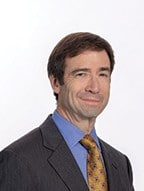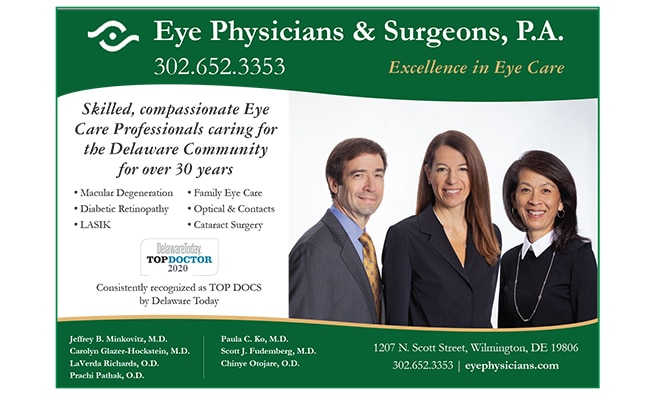Eye Care Leads In Health Care Technology

By Jeffrey B. Minkovitz, M.D.
Health care technology is responsible for the greatest advances in medicine but also the most significant share of increasing health care costs. In the United States, health care accounts for 18% of GDP, while unequal access and certain health outcomes trail most other developed countries. It is both rewarding and challenging to practice medicine at this time, enabled with amazing tools to improve quality of life, while tasked to consider cost and efficacy when evaluating new treatments. Legislators and administrators must work together with physician leaders to pursue strategies in the adoption of technology which can improve quality and access, while also lowering costs.
Eye care in the United States is one of the most technology-driven specialties. Advances in all areas have dramatically improved outcomes. Technology has improved efficiency, enhanced results, and restored visual function, allowing patients to return to productive and enjoyable activities faster and better than ever. The value to society must consider gains in quality of life and productivity at work.
Cataract surgery serves as a prime example. According to the American Academy of Ophthalmology, over 24 million Americans have cataracts, including half of all those over age 75. Cataract surgery is the most common surgery, with 4 million performed annually in the U.S. Small incision surgery and microscopes completely revolutionized the procedure over the last two decades. More recent improvements in intraocular lenses (especially astigmatic and multifocal lenses) have enabled patients to see even better than before their cataracts developed. Laser assisted cataract surgery and better ultrasound machines have further improved accuracy and reduced complications in the last few years
Laser surgery, although first introduced in 1962 for removing tattoos, is most commonly used in eye surgery. Using lasers to clear a film from lens implants after cataract surgery is one of the miracles of eye surgery, restoring vision in seconds, safely and without discomfort. Lasers are used for glaucoma, retinal tears, diabetic bleeding, and refractive surgery; in each case revolutionizing previous treatments (in effectiveness, cost and speed of recovery).
Refractive surgery is probably most associated with lasers. Replacing Radial Keratotomy from the 1980s, laser vision correction has allowed surgeons to fine tune results and minimize spectacle dependence for millions of patients. Newer lasers have become even faster and more accurate. Better diagnostic devices have allowed greater precision in measuring eyes for refractive as well as cataract surgery.
Glaucoma and dry eye have benefitted from new diagnostic technologies as well as novel new medications. Other subspecialty areas have experienced advances as well.
Retina care has also undergone dramatic change. Treatment for retinal detachments have become less invasive and more successful. Macular degeneration treatment has completely transformed, preserving and even restoring vision in a disease which only recently was disabling. Better imaging instruments have allowed more accurate diagnoses, and artificial intelligence and telemedicine are just now bringing specialty care to remote areas.
Technology must be carefully evaluated to ensure costs are justified by benefits. Administered well, technology can further advance health care and provide value far beyond incremental expenses. Practicing ophthalmology in these modern times, utilizing technology to improve lives, has been a joy and privilege.
For more information or to make an appointment with Dr. Minkovitz please call 302-652-3353 or visit www.eyephysicians.com.
follow us on facebook & instagram
Bio
Dr. Jeffrey Minkovitz specializes in corneal, cataract, and refractive surgery. A partner at Eye Physicians and Surgeons, P.A. since 1996, he is also on the staff of Christiana Care and the Center for Advanced Surgical Arts, where he serves on the medical advisory board. After graduating Magna cum Laude from Harvard University, Dr. Minkovitz received his medical degree from the University of Massachusetts Medical School. He was also named Top Doc in ophthalmology by Delaware Today Magazine for six consecutive years.
Dr Minkovitz is known for numerous Delaware firsts including PRK laser vision correction, NearVision CK, and newer less invasive techniques for corneal transplantation including DSEAK, DMEK and DALK. Together with his Center for Advanced Surgical Arts partner and co-founder, Dr. Minkovitz introduced laser cataract surgery to Wilmington, Delaware in 2012. In 2016, Dr. Minkovitz founded Laser Vision Delaware, LLC, once again raising the bar and bringing a newer, faster and more accurate refractive laser to Delaware.
Ophthalmology piqued his interest early on in medical school, as the specialty offers an appealing combination of surgical and medical care, advanced technology, and in particular the joy of being able to impact lives through restoring and enhancing vision. Dr Minkovitz also enjoys the ability to follow and really get to know his large cohort of patients.


